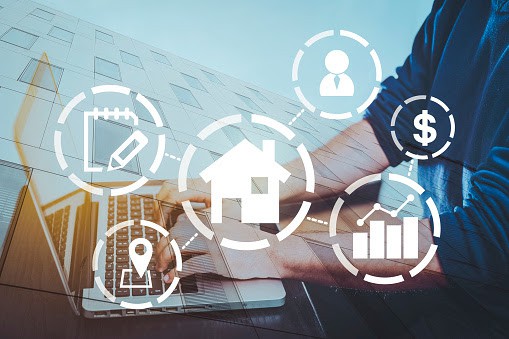There’s no denying that we live in a modern era where every aspect of our lives incorporates some form of technology. Whether it’s the way we communicate with people on the other side of the world or transport ourselves several miles within mere hours. Technological innovations are taking the world by storm and spreading their tentacles into every aspect of humanity, including the real estate industry.
In today’s article, we’ll be going over the ways technology has improved rental property management over the past 20 years.
Incorporation of Smart Devices
In the early 2000s, we were no foreigners to digital tools, but they weren’t as widespread as they are today. Less than half the country had broadband access, and smartphones were still a decade away from becoming mainstream.
But today, landlords have a wide selection of innovative home technologies to help them improve their rental property maintenance and security. At the touch of a finger, you can view the public spaces within your premises with the help of surveillance cameras. You can also receive alerts about intruders through smart alarms and locks. Or monitor each unit’s air and moisture level with a carbon monoxide or fluid detector. The best part is, you can sync all these tools in one home security system which you can log into on any connected device.
Online Listings
When you wanted to buy a house or announce a vacancy back in the day, you had to go with traditional media like newspapers and radio ads. While those methods are still very much in use today, they’re slowly becoming obsolete. In 2018, Statista reported that 93% of homebuyers used online websites to search for their homes, and why wouldn’t they? It’s so much easier to access multiple listing sites from your mobile phone than buying several copies of a newspaper.
Landlords can send photos and videos, conduct virtual reality tours and answer questions from prospective tenants without scheduling a physical meeting. Even renters across the state and continental borders can find suitable housing before they move. Thanks to technology, there’s a growing channel of communication that reduces some of the stress, agent fees and simplifies the tenancy application process.
Adopting Convenient Apps
We’ve grown to become more dependent on smartphones since they became mainstream in 2012. Over 77% of Americans own a smartphone and spend over four hours on their devices.
Today, the technological stratosphere works to keep users on their phones and tethered to their subscriptions. So, developers have created thousands of apps to cater to different demographics. Name whatever challenge you face as a landlord, and there’s most likely an app that can help you. Do you want to take better pictures and videos of your rentals? Become a Professional Video Editor with A Color Story or VSCOCam. You could manage your tenant applications more seamlessly with Rentberry or even seek real-time legal advice with Ask a Lawyer.
Managing a rental property can be a hassle-free task with the right consortium of mobile assistants.
Automation
It’s hard to imagine a time when rent collection was ever a savory activity. It’s a burdensome task sending mails or knocking on your tenants’ doors to remind them to pay on time. For landlords with multiple properties, it becomes an even more challenging chore.
Thankfully, over the last 20 years, the world has adopted a more automated lifestyle that expands to realty. Tenants can now automate payments, so neither they nor their landlords have to lift a finger when that time of the month comes again. This option saves both parties time and makes tracking easier.
Although, automation in realty expands to more than easing the burden of rent collection. You could also use it to schedule appointments, update your staff about changes, or remind your tenants of routine maintenance. Automation in real estate not only makes life more convenient, but it can also help you capture more leads, communicate better, and increase your revenue.
Better Accounting and Recording Keeping
Not everyone has a flair for numbers, and that presents a problem to anyone running a business. Keeping your records organized is an essential strategy to understand your money flow, file your taxes, and make your next budget accurately.
In the last two decades, online means of accounting and record-keeping have steadily gained traction. Now, you don’t have to hire an account to keep your books for you. There is a selection of accounting apps and software you could use to track your incoming revenue and outgoing expenses.
You can also store important documents such as your tenant leases and receipts in the cloud. This action gives you backup against fire, water, pests, and damage from other elements.
Conclusion
Technology has changed the real estate landscape over the past 20 years and will continue as time marches forward. Savvy landlords are adopting as many new technologies as possible to help them improve their service and secure more income.
However, it can be challenging to keep up with the latest technologies as it changes at an alarming rate. If you find it difficult to cope, you should consider consulting a professional who can assist. Property managers provide better services that keep both tenants and landlords happy.
